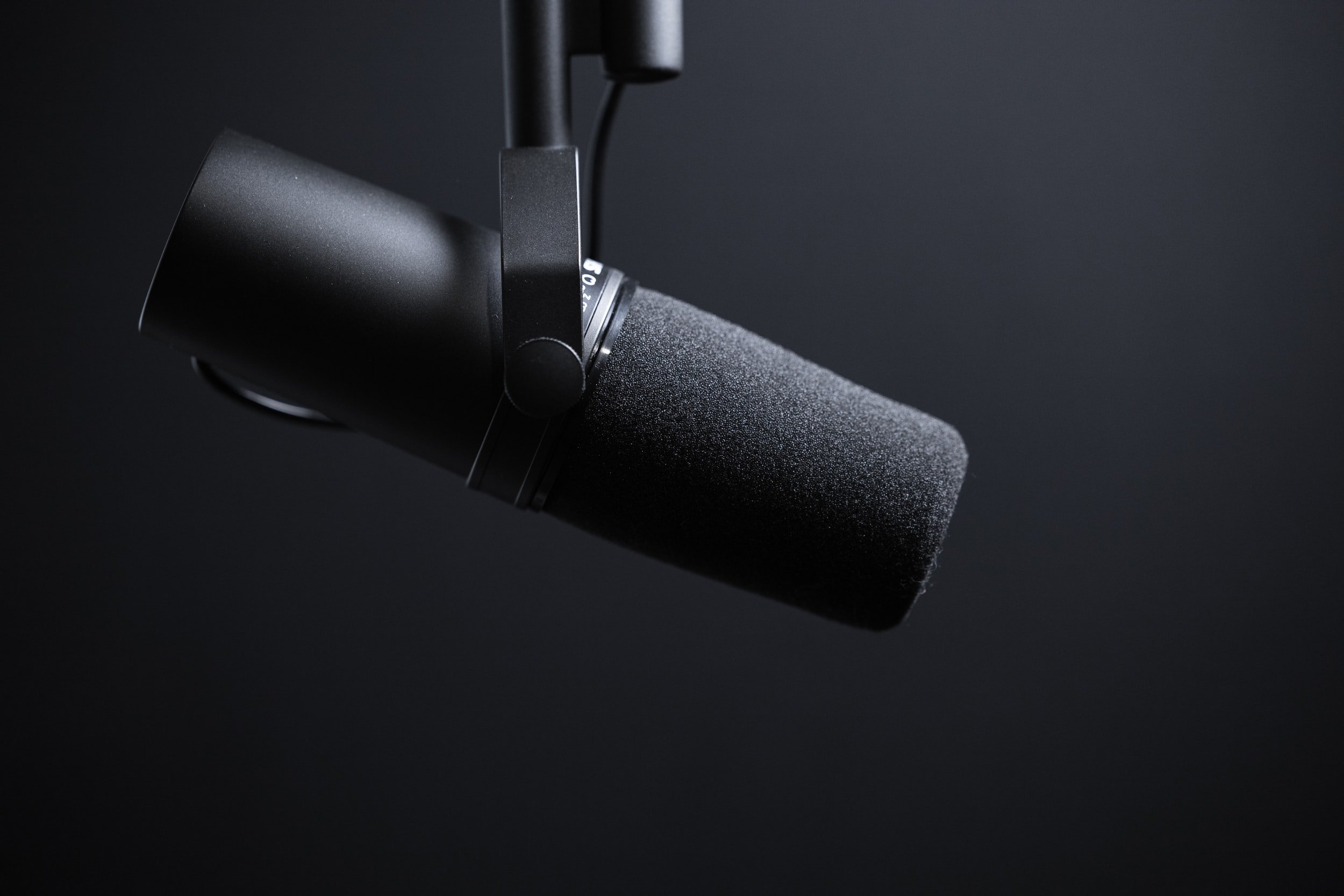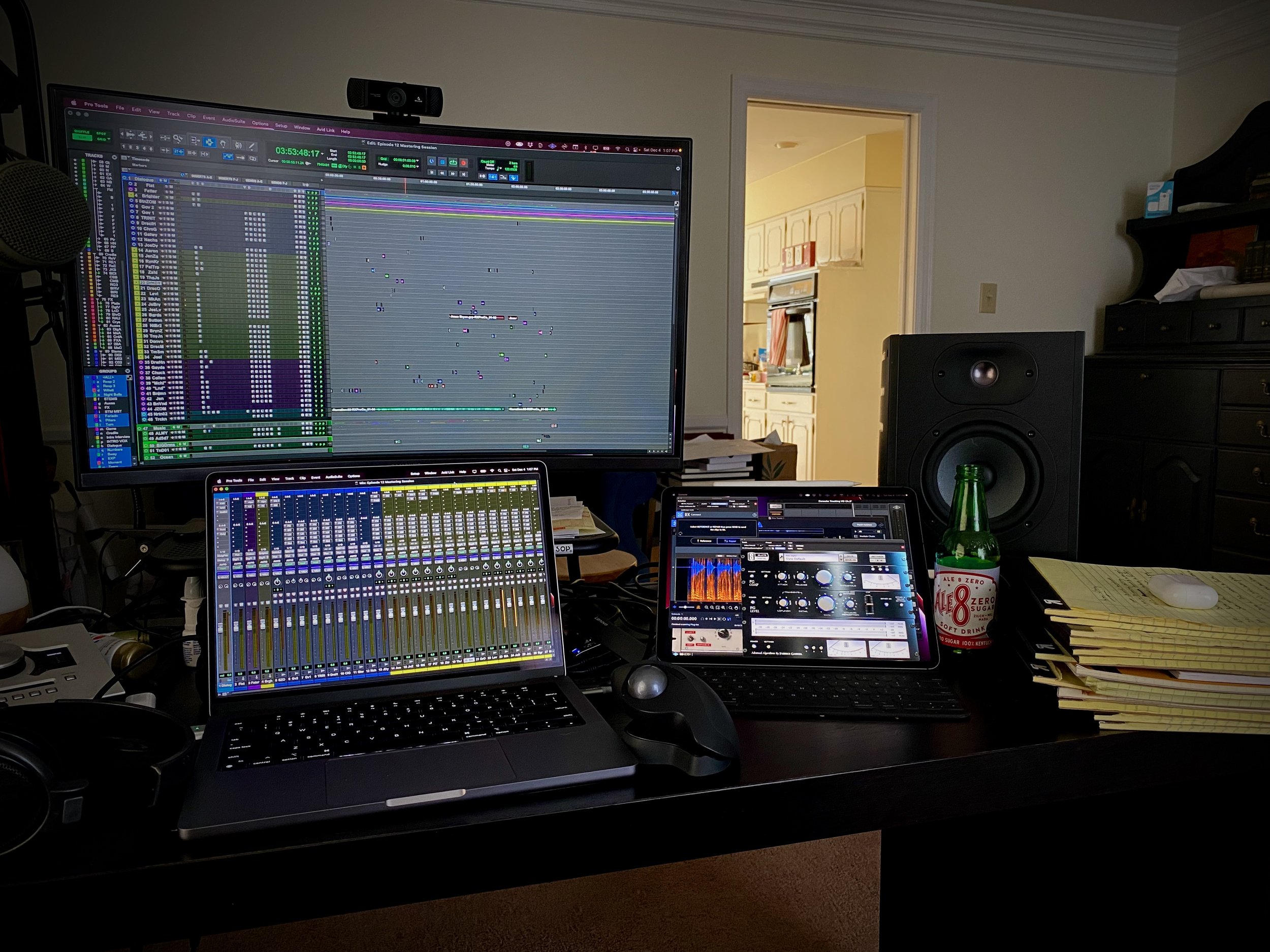
“The story is a machine for empathy.
In contrast to logic or reason, a story is about emotion that gets staged over a sequence of dramatic moments, so you empathize with the characters without really thinking about it too much. It is a really powerful tool for imagining yourself in other people's situations.”
– Ira Glass
I grew up immersed in audio storytelling.
Saturday mornings in my dad’s car were always filled with Car Talk; Saturday nights with A Prairie Home Companion. I was in high school when This American Life premiered and I’ve been an addict since day one.
From 2000-2015, I spent countless hours making records, where I feel in love with the nuances of audio production.
Those experiences came together for the work that began in 2016 – producing podcasts that are immersive audio experiences, connecting listeners to storytellers, artists, and innovators.
Today, I’m the Senior Director of Podcasts at Christianity Today. Our podcast The Rise and Fall of Mars Hill had more than 14 million downloads in 2021 and reached number 3 on the Apple Podcast and Spotify charts for all podcasts, and owned the number 1 spot in the Religion and Spirituality category for most of that year as well.
I love my work with CT and we have big things planned in the years ahead. I also maintain a small list of clients whom I consult to help develop, refine, and produce their own shows.
I believe my own experience provides some expertise in thinking about faith and culture, but regardless of the content, the need for understanding story is universal. I’ve worked with private equity firms, international missionary agencies, musicians, pastors, church planting networks, non-profits, and startup incubators, all creating content to tell stories about who they are and why they do what they do.
Below you’ll find a little window inside the production process I’ve developed for my own podcasts and for clients over 6 years of experience.
Concept.
There are a lot of podcasts out there. Too many of them. You probably shouldn’t start one. Making a great podcast requires far more hours than most people imagine, and requires a vision for a show that can make you stand out among the noise.
Team.
Making a good podcast requires assembling a good team. Each member should understand their skills, the role they’ve been asked to play, and the degree to which they have influence and authority over big decisions. Having the right combination of innovative thinking and wise experience is a delicate balance, but it’s essential in a healthy creative process.
Process.
After developing dozens of shows and producing hundreds of episodes of podcasts, I’m confident that no two processes look alike. That’s because the creative work of making a podcast taps into the unique gifts and personalities of the team – especially the hosts – and requires some degree of tailoring in order to have a healthy process. Defining that process is essential before production begins.
Production.
Once you have a concept, team, and defined process for making your show, production can begin. For some podcasts, that’s as simple is hitting “Record” and having a conversation. For others, it means spending months researching, interviewing, and writing. Production assembles the raw materials for your podcast, not the finished product.
Post-Production.
Every stage of this process requires skill and expertise. You can’t make a bad interview good in post-production. But you can certainly ruin a good one. Post-Production is where the details of editing, audio refinement, voiceover, and sound design happen, all of which elevate a podcast from ordinary to extraordinary. The image to the right is an example of one episode in which 90+ tracks of audio are stitched together to tell a story.
Distribution and Marketing
Understanding how people find podcasts and how to distinguish yours from the rest is a final, critical step. People want to find great content, and by making something compelling, beautiful, or useful, you’re giving them a gift.
Additional Elements of a Great Podcast
Branding
Branding isn’t just a good logo, font collection, and color scheme. It’s a clear understanding of who your audience is, how to speak their language, and how to make yourself comprehensible to them.
Launch Campaigns
Getting a podcast off the ground is a heavy lift. Done well, it creates momentum that can be built upon with quality content for months and years to come. That’s why you need a clear plan for how to launch your show in a way that immediately connects with key stakeholders and influencers who can help you spread the word.
Landmines
Maybe most importantly, years of experience and the development of dozens of shows amounts to a unique expertise in what doesn’t work. Understanding landmines, pitfalls, and impending trouble in your creative process is an invaluable resource before you launch.
If you’d like to learn more…
Click below to connect with me about how I might be able to serve you or your organization as you think about and develop your podcast.





